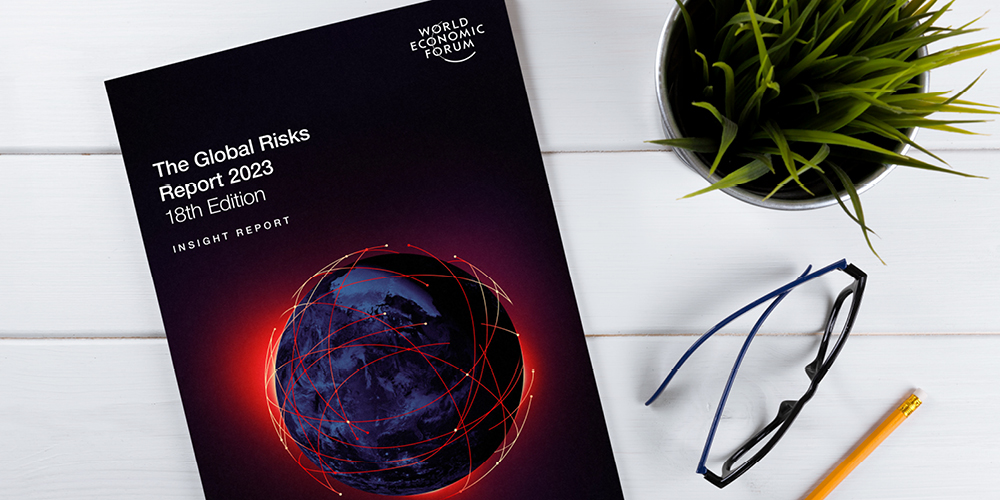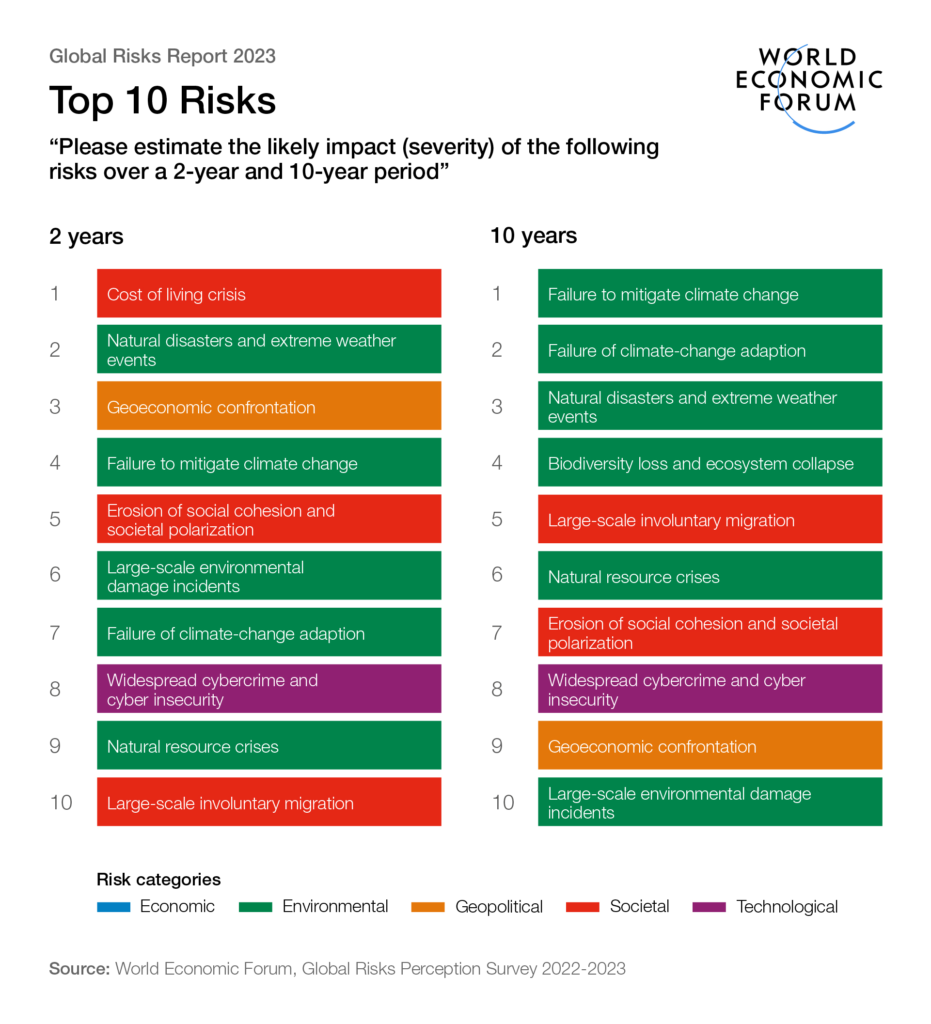After the cost of living crisis, ‘natural disasters and extreme weather’ is considered to be the most severe risk facing the world in the next two years. Taking a 10-year view, six of the top 10 most severe risks relate directly to climate change.

According to the World Economic Forum’s (WEF) Global Risks Report 2023, failure to respond to climate change and biodiversity loss are among the top five most severe risks facing the world in the long term.
The report, which is published annually, is based on the results of the WEF’s ‘Global Risks Perception Survey’, which brings together insights from more than 1,200 experts from academia, business, government, the international community, and civil society.
Respondents were asked to predict global volatility, describe the likely impact of global risks over a one, two, and ten-year horizon, assess relationships between global risks and the potential for compounding crises, assess risk preparedness and governance, and identify new and emerging risks.

Over the 10 years horizon, climate change and its impacts took the top four spots on the list, with loss of biodiversity and ecosystem collapse coming in at third and fourth, respectively.
The first non-environmental risk, forced migration, came in at fifth place.
The report also found that environmental risks made up five out of the top ten immediate risks as well.
The results of the report demonstrate a shift in awareness and understanding of the pressing nature of environmental risks.
In the 2013 edition of the report, water supply crisis and chronic fiscal imbalances were considered more impactful than climate change adaptation.
Now, climate change and its impacts are at the forefront of global risk perception and are areas where we are least prepared to face. The World Economic Forum emphasizes that addressing these environmental risks is an immediate necessity, not an act of idealism or sensitivity.